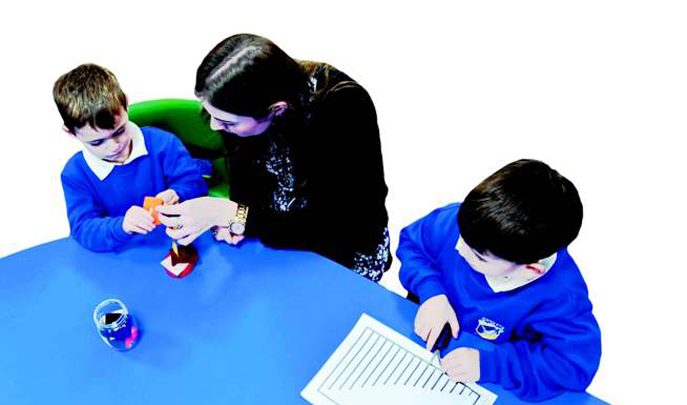How Can Schools Benefit From Occupational Therapy?

Could occupational therapy have a useful role to play in your school’s SEN provision? Student therapist Kerri Schubert recalls the impact of her work placement at Topcliffe Primary School, Birmingham…

I spent the final 10-week, full-time work placement of my occupational therapy course based at Topcliffe Primary – a mainstream school in Birmingham with a 60-place resource base for children with speech and language difficulties and autism.
When I arrived I saw a range of techniques being used to help pupils with SEN. As well as employing three SENCos, the school ensures that all staff receive training from the Autism Education Trust and that calming environments are available for those children who need them. These include classrooms designed to offer minimal stimulation, quiet areas, a quiet classroom that is available at lunch and break times and a state of art sensory room that children can use to shelter in, if required.
With no existing therapist working at the school, my role was to show how OT could complement what the school was already doing with its SEN provision.
Breaking tasks down
One of my main roles as an OT within the school was to provide care and promote independence among students within the mainstream part of the school, as well as children within the resource base, as part of a holistic approach.
I worked on a one-to-one basis with nine children referred to the OT service – five who had been diagnosed with autism, four with speech and language issues and one from a mainstream class. While the nature of the sessions would vary significantly depending on what issues the child presented with, it was common for these interventions to focus on:
• Promoting independence in dressing – especially buttoning skills • Self-care skills, such as how to use cutlery • Self-regulation and developing sensory strategies
I drew upon a number of techniques and activities and provided the children with specialised equipment to help them participate in certain tasks, such as special cutlery to help with correct finger positioning and special cushions to sit on that aided their concentration.
I graded and broke tasks down so that they became easier, and then built the pupils’ skills back up to the point where they could carry them out in full – for example, having them practise doing up big buttons first, then progressing onto smaller buttons.
Improved independence
Based on what they had witnessed from their observations and assessments, the school’s staff reported the OT programme as having had a positive impact on the children. Pursuing those strategies – of providing ‘caring cutlery’, and instructing the children in how to accomplish a simplified task and building on that to help them complete an everyday task – was noted to be extremely beneficial.
Since then, not only have the children been able to demonstrate improved independence in dressing and eating, but their handwriting skills and ability to self-regulate have also become better as a result. To achieve this, I worked in close collaboration with the school’s class teachers, teaching assistants and SENCOs. I would pass on the details of any techniques or equipment that I found to be particularly useful when working with a certain child, so that the or she could continue to benefit from the progress we made during their class time.
Following on from the OT placement, the school is now much more aware of what having an OT based within the learning environment can do for their pupils – so much so, that some Topcliffe staff have since expressed an interest in the school employing an OT on a regular fixed basis. The senior management team has moreover mooted the possibility of placing more OT students in the school in the years to come – thus validating and strengthening the case for having an OT based within the school setting.
About the author
Kerri Schubert is an occupational therapy student studying at Coventry University











